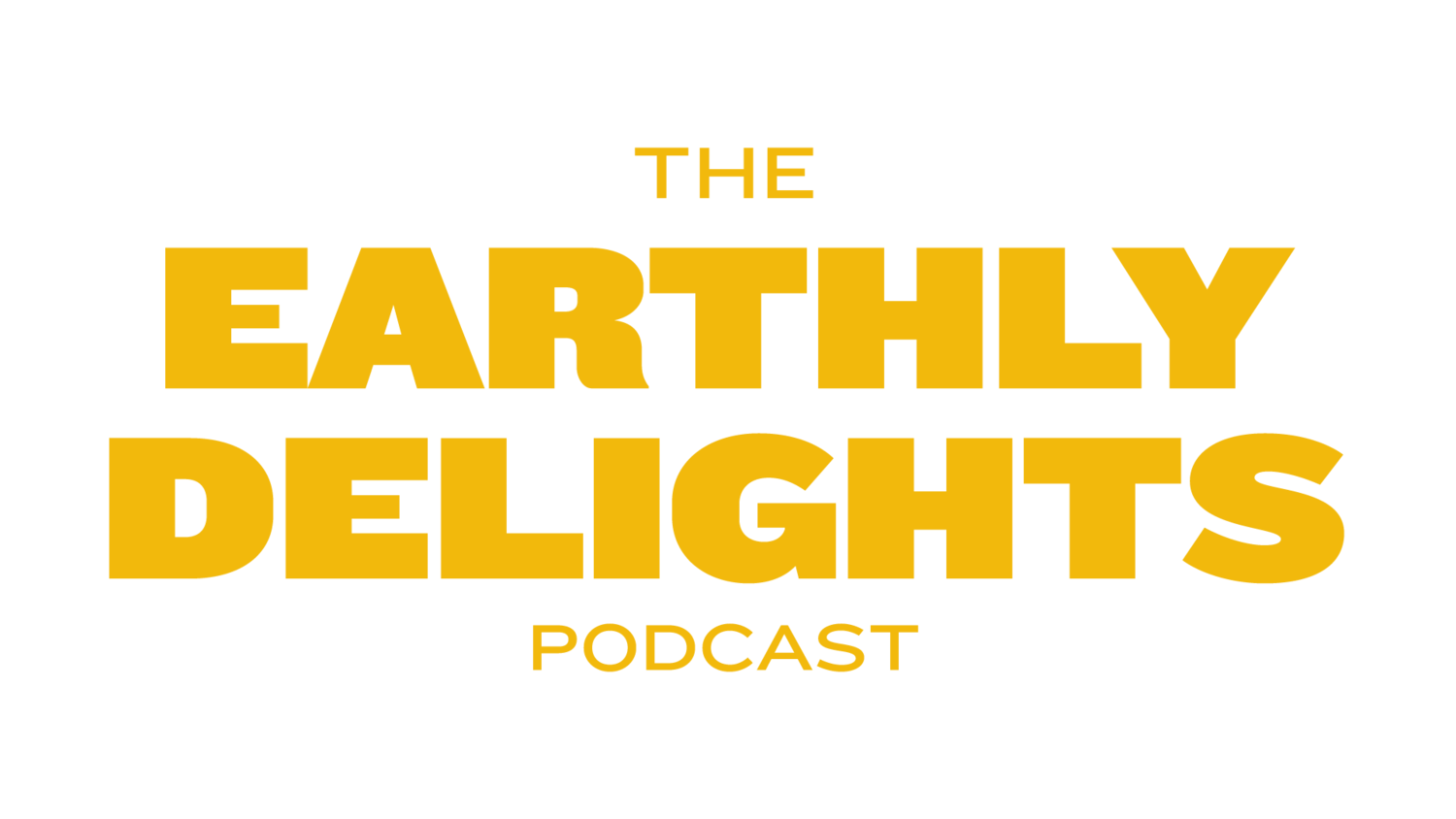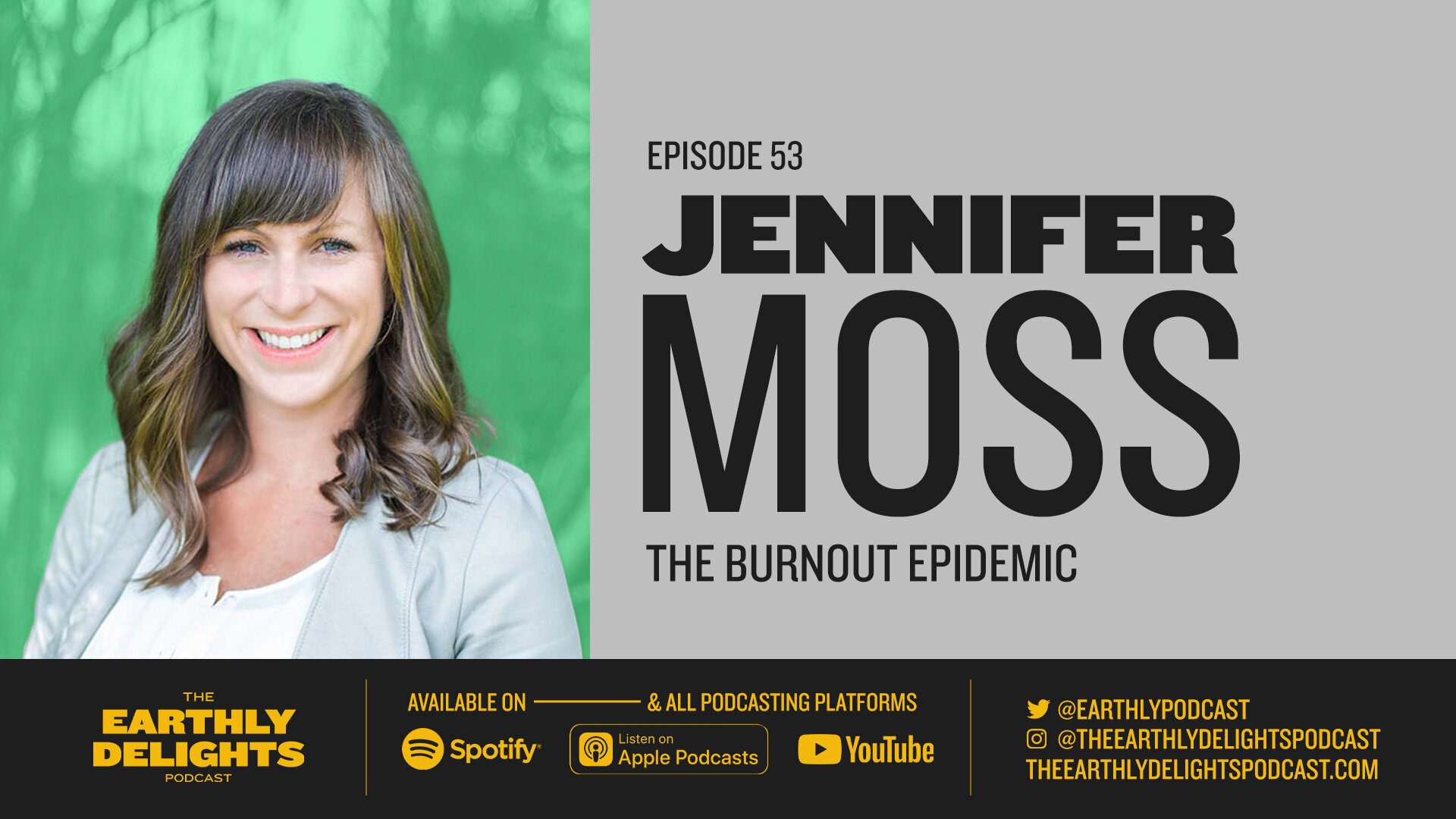#53: Jennifer Moss - The Burnout Epidemic
Download our unique episode Work Book which may help you work through any emotions/traumas raised in this podcast.
In this episode, The Earthly Delights’ duo speak with burnout expert, Jennifer Moss. Jennifer is an award-winning journalist, author and speaker who has a remarkable ability to swim within the nuances of work culture and what gives us greater well-being. During this conversation, we cover the symptoms of burnout, how to recover from burnout and how to avoid it. We also discuss what the impact of the mass move towards working from home is doing to our health and how the future of work can be. Other areas of discussion include: zoom fatigue, being ‘ourselves’ at work, and feeling stuck in our job/career. We took a lot from this chat and really felt uplifted after. This is an informative dive into the all too common world of burnout. Please let us know what you think and thank you for listening!
Here are 3 reasons why you should listen to the full episode:
1. What exactly is burnout? What are the symptoms? How can it be prevented?
2. How might the future of work look like?
3. How do we go about changing the fetishisation of overworking?
4. What is the impact of having a close friend or friends at work in relation to burnout?
6 Powerful Quotes from This Episode
“In 2019, the official WHO description of burnout changed. It was identified as an occupational phenomenon, stress left unmanaged/adequately addressed. The root causes of burnout are highly systemic including unsustainable workload, which we are seeing a lot of this year, and a feeling of being micromanaged like you have no control. These are issues that cannot be solved by self-care, these are massive infrastructure and policy issues that need to be improved.”
“Leaders have to start celebrating the behaviours that they want to see in the workplace. Managers have to be very clear about expectations. You can’t be what you can’t see.”
“There is still an antiquated indebted servitude expectation from employees to employers; a transactional relationship. I as an employer can ask you for something and if you don’t, I will find someone else to do that job. Until we move away from this transactional relationship, we will still have overwork.”
“The metrics we use to evaluate success in business should be in alignment with well-being and mental health and they are not.”
“When you think about your job, it’s so important to think about those tasks that seem mundane or meaningless; we have to give them meaning- to change why they matter to our overall goal. Our mindset is critical to how we have healthy careers.”
“We are not going to ask our employers to be responsible for our happiness, we are going to ask our employers to not be responsible for detracting from our happiness.”
“We need to look at harmonious vs obsession passion approach to work. The inability to disconnect from work is a symptom of obsession passion. There is a perfect ideal place with work where we are connected to what we do in the day, we feel like there’s value; to feel like we are contributing.”
Episode Highlights
Burnout
● Jennifer discusses some of her findings around burnout and highlights while there are actions we can take personally to improve our well-being, burnout is a systemic problem that needs systemic change.
Relationship between burnout and ‘Bullshit Jobs’
● Jennifer cites a recent report including millions of data points that found that 85% of people worldwide hated their jobs and hated their managers. Only 15% of the workforce is engaged. There is a giant group of people that are just showing up, with no purpose or meaning. These statistics are critical in understanding our overall well-being and mental health.
People feeling stuck
● Jennifer speaks on the first ten years of work, and how they often consist of a lot of control, a higher likelihood of being micro-managed, feeling a lack of agency. She then expands on the frustration many people are feeling within their job; feeling overeducated, overqualified. Jennifer suggests to combat this long-term we should deeply consider career goals, with a process called job mapping. Jennifer references research that shows our ability to see the purpose in our job can change our opinion of the job and future opportunities.
Too much importance on our job?
● We ask Jennifer if perhaps we, as a culture, place too much significance on our job. She answers in a very nuanced way to accentuate the problems that can arise when our job over-clouds our identity and life (obsessive passion) while acknowledging the benefits we experience when feeling good about our job, or having a good friend within our job. Our relationships are crucial to our well-being, whether they exist within work or outside, work we need strong relationships.
Being ‘yourself’ at work
Jennifer describes an ‘effortless state of belonging’ that we all long for. Having this in the workplace is very special and research shows this contributes significantly to our well-being. Nevertheless, Jennifer does acknowledge that in the world we live in, we often have to wear different hats and that’s ok. She believes this is healthy as long as these different ‘hats’ or expressions still are representative of who we are. The organisations where we are ‘completely not ourselves’ are where we see a lot of burnout.
Zoom Fatigue
Jennifer mentions that we do not receive the same neural activities and chemistry that make us feel tied to other people through remote calls. If we don’t feel this bonding chemistry while we work, forming relationships becomes more challenging. She states we need to see people at least once in person to begin developing a certain bond with them. Work from home forever is swinging the pendulum too far in one direction. Jennifer is a proponent of a hybrid solution to our difficulty working from home.
Enjoy this Podcast?
We are very grateful to Jennifer for giving us her time and speaking so eloquently about this prominent issue. Jennifer was such a fantastic guest and her work is incredibly inspiring. If you want to hear more from Jennifer, check out her most recent book: The Burnout Epidemic: The Rise of Chronic Stress and How We Can Fix It. Also, check out her website and Twitter to find out more about her and her important work. We hope this conversation can help (ever so slightly) spread awareness of this issue while giving listeners a new approach to their particular job. As ever, thanks a million for listening! We would love to hear your feedback!
Post a review and share it! If you valued the content of this podcast, do not hesitate to write a review. You can also share this with your family and friends if you believe this information needs to be spread!
Have any questions? You can contact us via email or find us on Facebook, Instagram, and Twitter. Thanks for listening!
For more updates and episodes, visit the website. You may also tune in on Apple Podcasts, Spotify, and Youtube.



